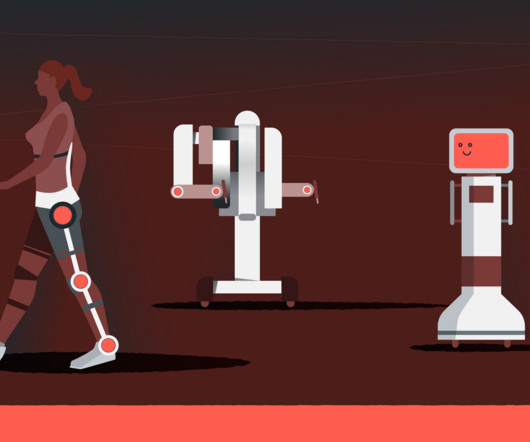From Surgeries To Keeping Company: The Place Of Robots In Healthcare
The Medical Futurist
MAY 18, 2025
Assisting surgeries, disinfecting rooms, dispensing medication, keeping company: believe it or not these are the tasks medical robots will soon undertake in hospitals, pharmacies, or your nearest doctor’s office. These new ‘colleagues’ will definitely make a difference in every field of medicine.

































Let's personalize your content